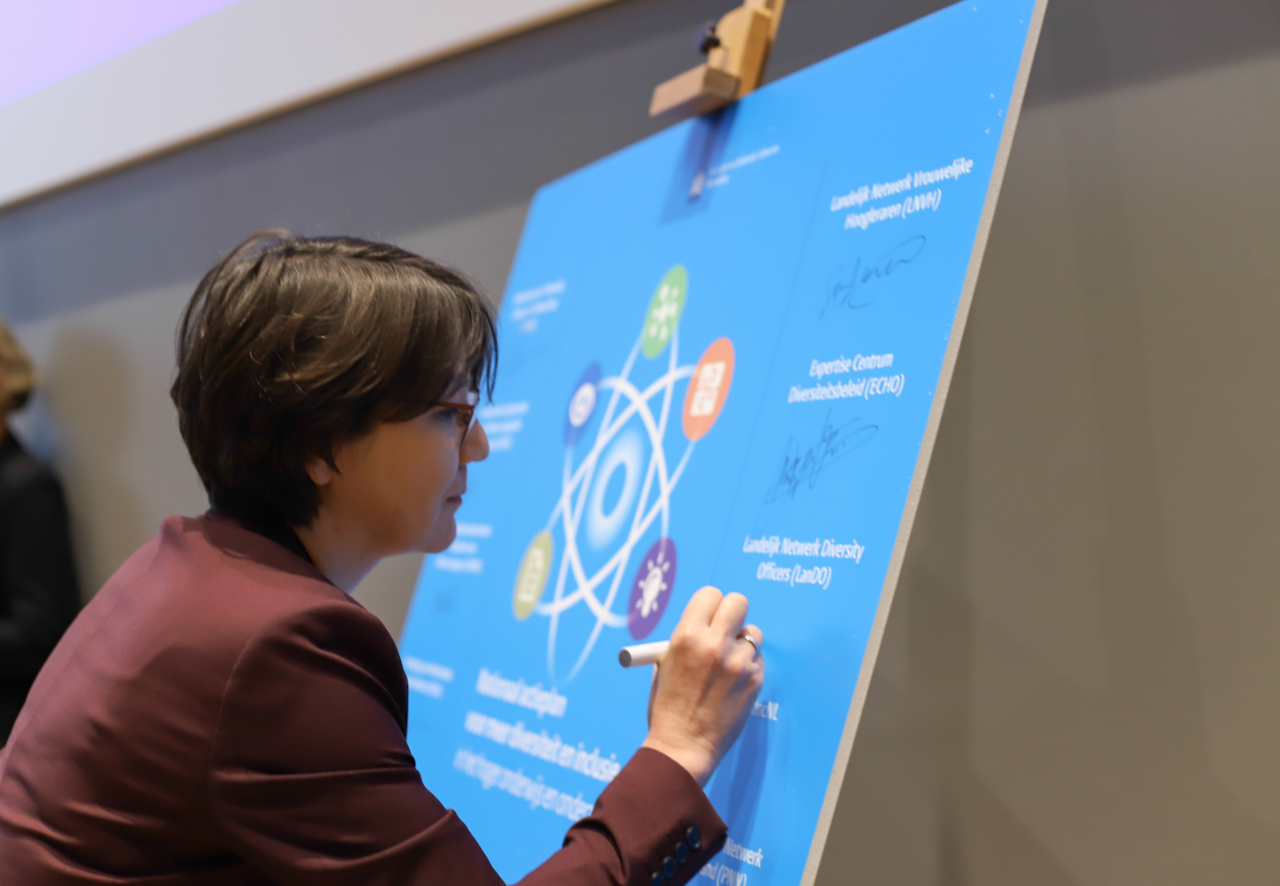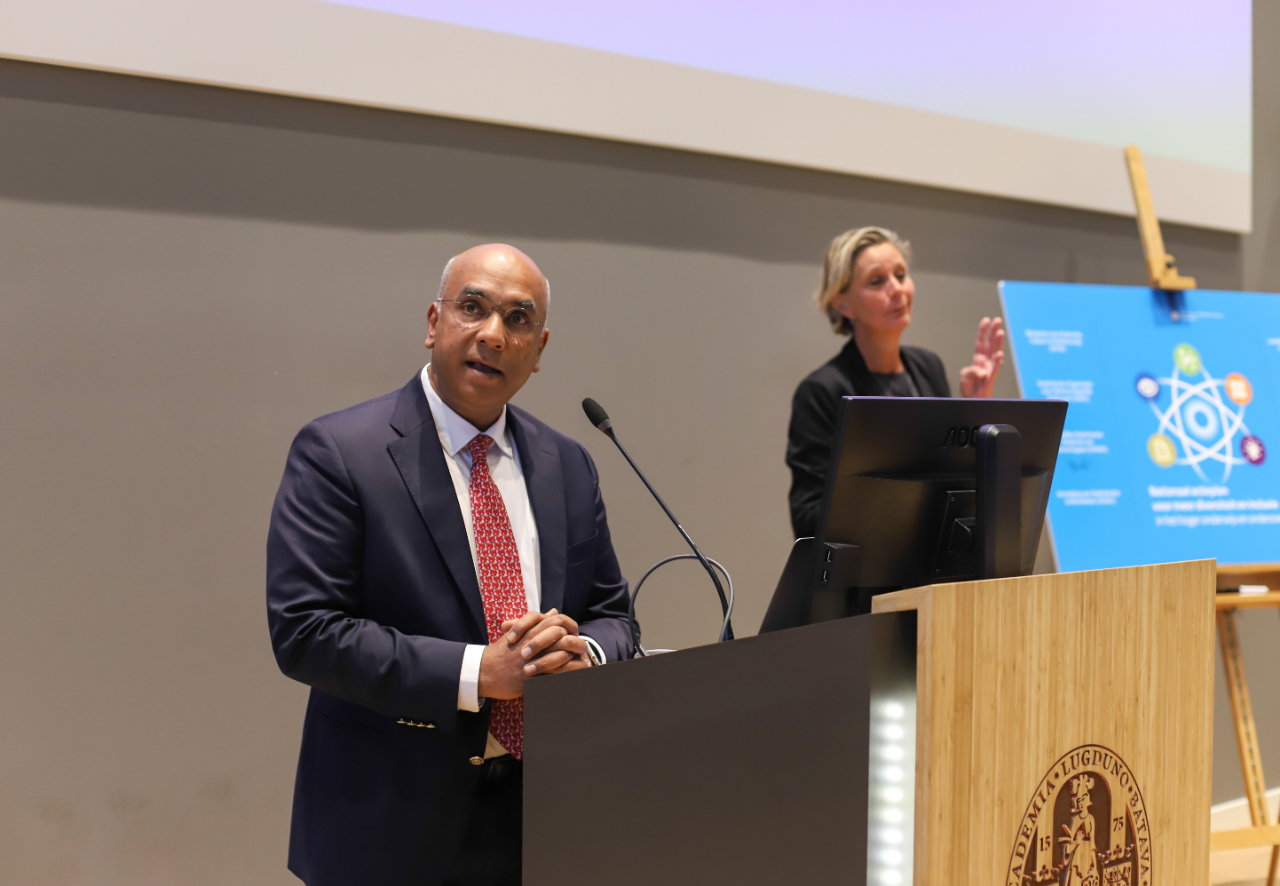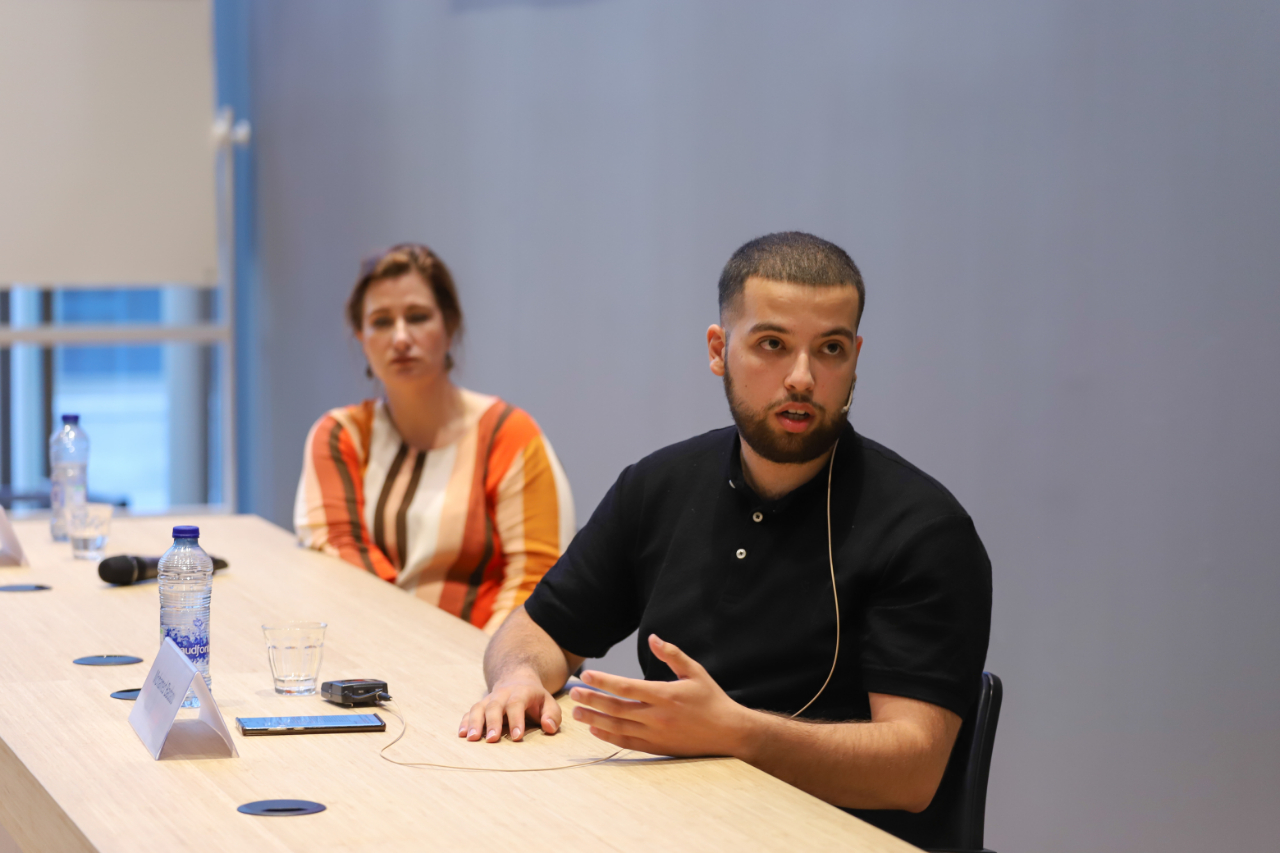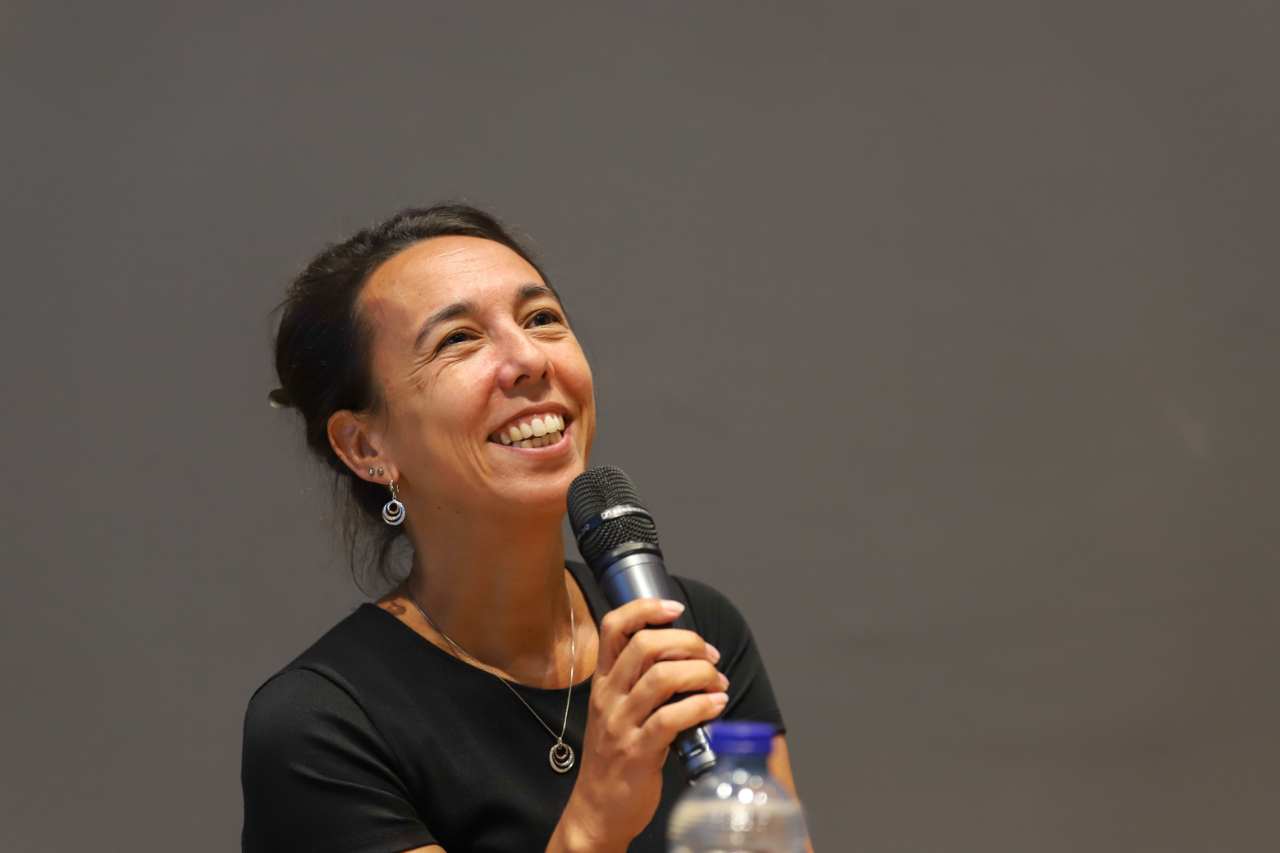
National Action Plan on Diversity and Inclusion launched at Wijnhaven
As of 1 September, the Netherlands has a national action plan to promote diversity and inclusion in teaching and research. The plan was launched at Leiden University’s Wijnhaven building on its Campus The Hague.
With this action plan (in Dutch) , the Dutch universities and research institutions, in conjunction with the government, have taken a further step in their commitment to diversity and inclusion. Nine parties signed the plan, including the Ministry of Education, Culture and Science (OCW), the Association of Universities in the Netherlands (VSNU) (of which Leiden University is a member), the Royal Netherlands Academy of Arts and Sciences (KNAW) and the Dutch Research Council (NWO).
New targets for number of female professors
The action plan sets out clear conditions and a clear framework to enable the parties to achieve various diversity goals, such as creating equal opportunities for female academics and attracting students and staff from a bicultural background. New targets will be set this year, for instance, on the percentage of female professors at the Dutch universities by 2025. At present, around 23% of professors in the Netherlands are female (at Leiden University this is almost 30%); what this percentage should be in five years’ time will become apparent later this year.
The KNAW will also issue advice on how to prevent intimidation and misconduct in teaching and research, and there will be an ‘impulse programme’ for researchers from a multicultural background. There will also be a national advisory board that is entrusted with tasks such as monitoring progress. ‘It’s important that we work towards a safe learning and working environment for all,’ said Minister Ingrid van Engelshoven (OCW). ‘Let’s cherish rather than problematise what is unique about each and every one of us. That’s also a prerequisite for academic quality.’

Vice-Rector Hester Bijl’s response
Leiden University Vice-Rector, Hester Bijl, opened the meeting. She said she felt honoured that the action plan was being signed at Leiden University, and spoke about how she could see that although her own organisation was making progress in the area of diversity, it was struggling with it at the same time. ‘We have a central diversity policy, an extremely dedicated diversity office and many committed administrators, lecturers and students, but we’re not there yet. The number of role models for students from a multicultural background is limited, for example.’
A national advisory board chaired by Vinod Subramaniam, Rector Magnificus of VU Amsterdam, will advise OCW and the research and teaching field on how to monitor and achieve the targets. ‘Together, we will make higher education representative and future-proof,’ said Subramaniam in the presentation. ‘But above all, it’s the right thing to do.’
‘Get your administrative house in order first’
In a panel discussion, experts talked about how to put the many ideas into practice. How to convert a paper diversity policy into an academic world that is open to all, regardless of background or sex? Leiden professor Judi Mesman (who is also Dean of University College The Hague) was firm: ‘You first have to get your administrative house in order. And by that I mean not only the Executive Board – that’s actually okay – but also the managers at lower levels. They have to get it, understand the vocabulary. You can’t just leave such an important theme up to a diversity office.’
-

Aya Ezawa, Leiden University’s Diversity Officer, signed on behalf of the National Association of Diversity Officers (LanDO). -

Vinod Subramaniam, Rector Magnificus of VU Amsterdam, will chair the advisory committee. -

Panel members Semiha Denktaş and Mohamed Badaou. -

Panel member Judi Mesman.
Semiha Denktaş, Diversity Officer at Erasmus University, agrees. ‘When I was appointed in 2018, I immediately asked the Executive Board what my exact mandate was. A diversity officer shouldn’t be a solitary figure, but should instead receive enough of a budget and voice to be able to drive structural and cultural change, with the ultimate goal of achieving sufficient diversity in the university pipeline. Because today’s student assistant could be tomorrow’s professor.’
The third panel member, VU student Mohamed Badaou, ended by saying that he hoped the action plan would result in more communication and transparency between the institutions, on how they give shape to their diversity policy, for example. ‘Most of all, lets take advantage of the national nature of this plan.’
Other signatories
Alongside the parties above, the following signed the action plan: the Dutch Network of Women Professors (LNVH), the Expertise Centre for Diversity (ECHO) and the National Association of Diversity Officers (LanDO, the Network of PhD Candidates in the Netherlands (PNN) and PostdocNL.
Photos: Ebru Aydin
